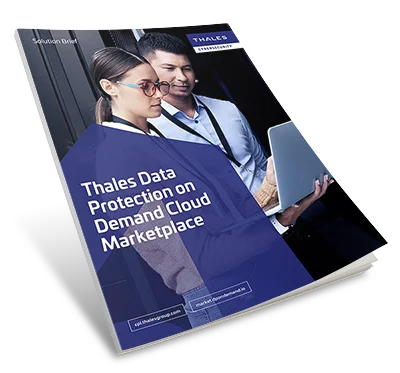FIPS 140-2 Certification
Thales helps you meet your needs for data security compliance with FIPS 140-2 certified products.

The Federal Information Processing Standard (FIPS) Publication 140-2 (FIPS PUB 140-2), commonly referred as FIPS 140-2, is a US government computer security standard used to validate cryptographic modules. FIPS 140-2 was created by the NIST1 and, per the FISMA2, is mandatory for US and Canadian government procurements. Many global organizations are also mandated to meet this standard.
Thales delivers security products that have been tested and validated against the rigorous FIPS 140-2 standard, helping you comply with regulations while also giving you the confidence you need in your cryptographic tools.
1 https://www.nist.gov/
2 https://csrc.nist.gov/topics/laws-and-regulations/laws/fisma
According to FIPS Publication 140-2:
[It] provides a standard that will be used by Federal organizations when these organizations specify that cryptographic-based security systems are to be used to provide protection for sensitive or valuable data. Protection of a cryptographic module within a security system is necessary to maintain the confidentiality and integrity of the information protected by the module. This standard specifies the security requirements that will be satisfied by a cryptographic module.
… The security requirements cover areas related to the secure design and implementation of a cryptographic module. These areas include cryptographic module specification; cryptographic module ports and interfaces; roles, services, and authentication; finite state model; physical security; operational environment; cryptographic key management; electromagnetic interference/electromagnetic compatibility (EMI/EMC); self-tests; design assurance; and mitigation of other attacks.
The US National Institute of Standards and Technology (NIST) and Canadian Communications Security Establishment (CSE) jointly participate as certification authorities in the Cryptographic Module Validation Program (CMVP) to provide validation of cryptographic modules to the FIPS 140-2 standard.
For more information, click here.
Thales develops cryptographic products and subsystems that conform to the FIPS 140-2 security standard. Thales products that meet the standard include:
Luna HSMs from Thales provide a hardened, tamper-resistant environment for secure cryptographic processing, key generation and protection, encryption and more. Available in three FIPS 140-2 certified form factors, Luna HSMs support a variety of deployment scenarios.
In addition, Luna HSMs:
The payShield family of HSMs are proven hardware security modules dedicated to the payment industry for issuing credentials, processing transactions, and managing keys.
At the center of the CipherTrust Data Security Platform is the FIPS140-2 compliant CipherTrust Manager, which provides cryptographic-key and policy management for CipherTrust Transparent Encryption, CipherTrust Tokenization, and CipherTrust Application Data Protection. Delivered in virtual and physical appliance form factors, the CipherTrust Manager delivers key storage and protection for data at rest.
Secure your digital assets, comply with regulatory and industry standards, and protect your organization’s reputation. Learn how Thales can help.

An Anchor of Trust in a Digital WorldBusiness and governmental entities recognize their growing exposure to, and the potential ramifications of, information incidents, such as:Failed regulatory auditsFinesLitigationBreach notification costsMarket set-backsBrand injuryAnd even...

payShield from Thales is the world’s leading payment HSM, helping to secure an estimated 80% of global point of sale (POS) transactions. As the HSM of choice for payment solution providers and payment technology vendors, it delivers proven integration with all of the leading...

Thales Data Protection on Demand (DPoD) is a cloud-based platform that provides a wide range of Cloud HSM and key management services through a simple online marketplace. With DPoD’s extensive platform of Luna Cloud HSM, CipherTrust Key Management, payment, and partner-led...

Perhaps the most comprehensive data privacy standard to date, GDPR affects any organization that processes the personal data of EU citizens - regardless of where the organization is headquartered.

Any organization that plays a role in processing credit and debit card payments must comply with the strict PCI DSS compliance requirements for the processing, storage and transmission of account data.

Data breach notification requirements following loss of personal information have been enacted by nations around the globe. They vary by jurisdiction but almost universally include a “safe harbor” clause.